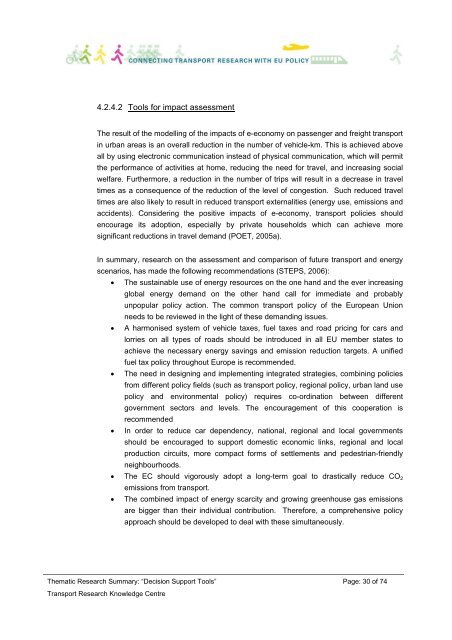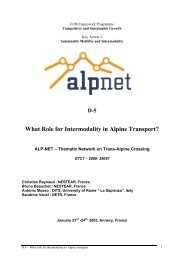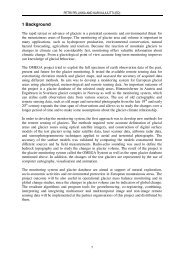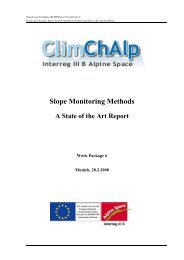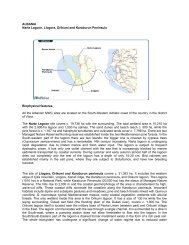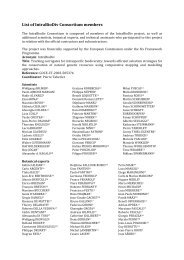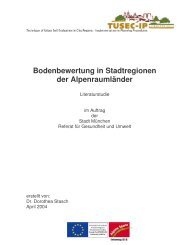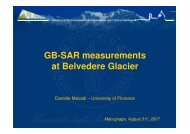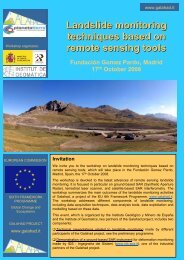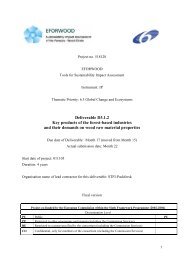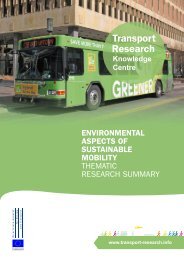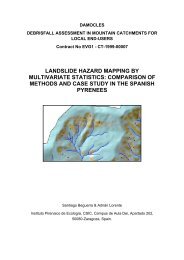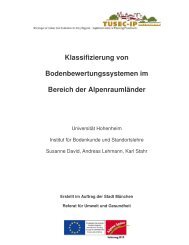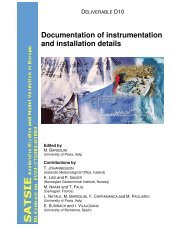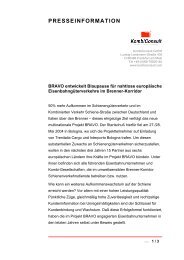Decision Support Tools - Thematic Research Summary - Transport ...
Decision Support Tools - Thematic Research Summary - Transport ...
Decision Support Tools - Thematic Research Summary - Transport ...
Create successful ePaper yourself
Turn your PDF publications into a flip-book with our unique Google optimized e-Paper software.
4.2.4.2 <strong>Tools</strong> for impact assessmentThe result of the modelling of the impacts of e-economy on passenger and freight transportin urban areas is an overall reduction in the number of vehicle-km. This is achieved aboveall by using electronic communication instead of physical communication, which will permitthe performance of activities at home, reducing the need for travel, and increasing socialwelfare. Furthermore, a reduction in the number of trips will result in a decrease in traveltimes as a consequence of the reduction of the level of congestion. Such reduced traveltimes are also likely to result in reduced transport externalities (energy use, emissions andaccidents). Considering the positive impacts of e-economy, transport policies shouldencourage its adoption, especially by private households which can achieve moresignificant reductions in travel demand (POET, 2005a).In summary, research on the assessment and comparison of future transport and energyscenarios, has made the following recommendations (STEPS, 2006):• The sustainable use of energy resources on the one hand and the ever increasingglobal energy demand on the other hand call for immediate and probablyunpopular policy action. The common transport policy of the European Unionneeds to be reviewed in the light of these demanding issues.• A harmonised system of vehicle taxes, fuel taxes and road pricing for cars andlorries on all types of roads should be introduced in all EU member states toachieve the necessary energy savings and emission reduction targets. A unifiedfuel tax policy throughout Europe is recommended.• The need in designing and implementing integrated strategies, combining policiesfrom different policy fields (such as transport policy, regional policy, urban land usepolicy and environmental policy) requires co-ordination between differentgovernment sectors and levels. The encouragement of this cooperation isrecommended• In order to reduce car dependency, national, regional and local governmentsshould be encouraged to support domestic economic links, regional and localproduction circuits, more compact forms of settlements and pedestrian-friendlyneighbourhoods.• The EC should vigorously adopt a long-term goal to drastically reduce CO 2emissions from transport.• The combined impact of energy scarcity and growing greenhouse gas emissionsare bigger than their individual contribution. Therefore, a comprehensive policyapproach should be developed to deal with these simultaneously.<strong>Thematic</strong> <strong>Research</strong> <strong>Summary</strong>: “<strong>Decision</strong> <strong>Support</strong> <strong>Tools</strong>” Page: 30 of 74<strong>Transport</strong> <strong>Research</strong> Knowledge Centre


